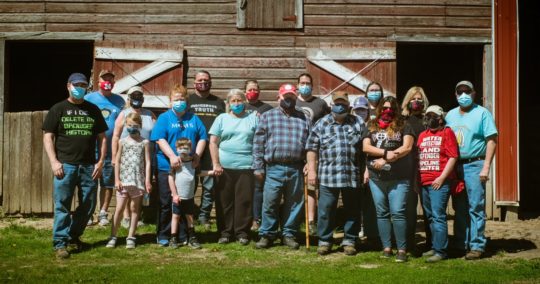For 97 years now, farmers and ranchers from across the state have gathered to craft policy at the Nebraska Farmers Union State Convention. The purpose of this event is to give State Office representatives, such as myself, a set of guidelines to be carried out on behalf of family farmers and ranchers across Nebraska. It also gives producers in their respective areas an opportunity to voice their opinions on issues that impact them.
Shortly after harvest time, counties from all across the state hold local meetings and send delegates on their county’s behalf. They represent members’ beliefs on current policy or new issues that are not yet covered. In addition, the Nebraska Farmers Union (NEFU) delegation crafts a series of ‘Special Orders of Business’ that deal with evolving current issues which require immediate action.
Many issues were discussed this year including Ethanol Tax Credit Extensions (VEETC), GIPSA enforcement concerning livestock concentration, wind energy, commodity futures trading regulations and even the use of ‘fracking’ to extract natural gas. However, the largest concern submitted from the most counties dealt with the Keystone XL Pipeline.
The NEFU Policy did not have language dealing with any kind of pipelines, and the current situation is not your ‘run of the mill’ pipeline issue. Unlike most pipelines, the Keystone XL would be carrying a new form of crude oil that comes from tar sands. They are extracted from underneath the Boreal Forest in Alberta, a vast Canadian region, which is one of the largest intact eco-systems in the Western Hemisphere.
This pipeline, which TransCanada has proposed to build, is pegged to run right through the middle of ranch country Nebraska. This has caused quite a stir amongst rural Nebraskans who would both be directly and indirectly affected by the construction of the pipeline.
Policy language implemented into the NEFU Policy was general language and designed to cover long-term, various issues that have arisen and could possibly resurface such as water issues and eminent domain. New Policy language also supports creating a state agency dealing with pipelines and setting up an escrow based on percentage of dollars earned through the volume of the product transported to pay for all road construction, emergency response situations, training of local emergency response providers and other costs.
After considering these policy additions, the delegating body passed Special Orders of Business.
On top of these Special Orders was a public debate at the convention which gave TransCanada spokesperson Jeff Rauh and Plains Justice Attorney Paul Blackburn 20 minutes each to present their take on the Keystone XL Pipeline. The crowd estimated by the Grand Island Independent to be about 200 people then had 20 minutes to follow up with questions and comments.
The 2010 97th Annual NEFU Convention was quite an event and even more importantly it was a great example of how empowering people to participate in the grassroots process can have a major impact. The battle will go on to protect our natural resources, but thanks to the great members of the Nebraska Farmers Union, rural people are speaking out and expressing their concerns.



